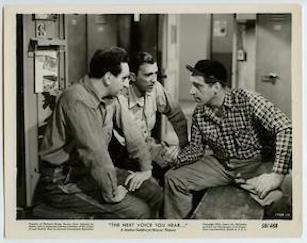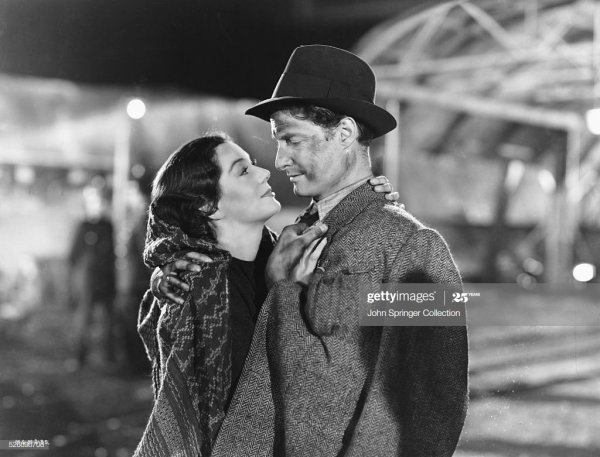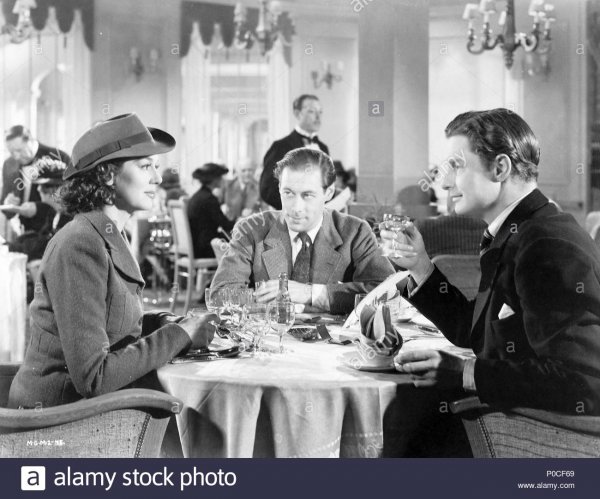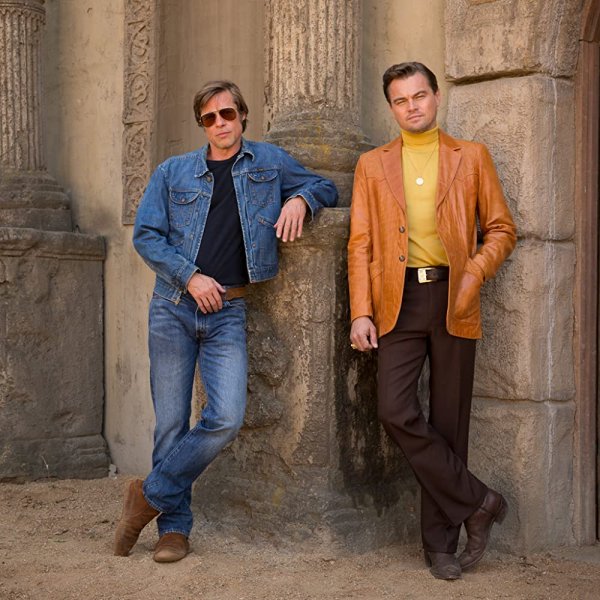Harp
I'll Lock Up
- Messages
- 8,508
- Location
- Chicago, IL US
How 'bout you?
Oil; S&P index; started long ago spreading Treasuries/Eurodollars. Simpler time long ago.
Yesterday's Texas Light coffee crash through the floor.
How 'bout you?



About a week ago, it was Double Harness (1933) with Ann Harding and William Powell (billed in that order), from the TCM app. A post on IMDB calls it a gem of social satire, while I view it as a film of a stage play that did not quite replace stage delivery with film acting. Several monologues seem written for and delivered for an audience just beyond the footlights. The plot is rich folks acting archly and sophisticated about marriage. Powell is Powell, always smooth, making acting seem effortless.....
Great movie. I loved it. Sad... it's true but well done post war Japanese film.Just finished watching The Burmese Harp (1956) Criterion Collection
Outstanding movie.....but sad.

 John Lofgren Monkey Boots Shinki Horsebuttt - $1,136 The classic monkey boot silhouette in an incredibly rich Shinki russet horse leather.
John Lofgren Monkey Boots Shinki Horsebuttt - $1,136 The classic monkey boot silhouette in an incredibly rich Shinki russet horse leather.  Grant Stone Diesel Boot Dark Olive Chromexcel - $395 Goodyear welted, Horween Chromexcel, classic good looks.
Grant Stone Diesel Boot Dark Olive Chromexcel - $395 Goodyear welted, Horween Chromexcel, classic good looks.  Schott 568 Vandals Jacket - $1,250 The classic Perfecto motorcycle jacket, in a very special limited-edition Schott double rider style.
Schott 568 Vandals Jacket - $1,250 The classic Perfecto motorcycle jacket, in a very special limited-edition Schott double rider style. Thank you for this. This movie is on offer on the $1 movie of the week....for that kind of money plus your + review I will risk the 2 hours of my life.View attachment 231331
Once Upon a Time in Hollywood from 2019 with Brad Pitt, Leonardo DiCaprio and an incredible array of stars ranging from newcomers to long-in-the-tooth veterans.
I flat-out enjoyed it, as I do most Tarantino movies, as his brand of craziness works for me.
Less a plot-driven than a moment-in-time movie, it's the story, at least from one angle, of how a now-struggling, but once-successful TV actor (DiCaprio) and his friend, stuntman double and factotum (Pitt) try to navigate the insanity of 1969 Hollywood, its drug scene and, not unrelatedly, its counterculture. Heavily weaving in and taking great liberties with "The Manson Family" and Sharon Tate murder stories allows Tarantino to launch into a trip through America's late-60s' zeitgeist closet.
And, as Tarantino does, he amps it all up, changes what he wants, fires dialogue out of a machine gun, indulges in gratuitous violence, shows you intimate details that highlight the difference between our outward lives and what really goes on all the while spinning you through a world of madness and insanity that only works because our world is mad and insane.
We see some of that madness and insanity when Pitt - picking up a young female hippie hitchhiker - takes a trip out to The Manson Family ranch owned by an old friend of Pitt's, where, in one defining scene he, effectively, confronts this sadistic and crazy sleeve of the hippie culture by showing that a combination of human decency (his concern for his old friend) and a greater physical prowess (these are not peacenik hippies) easily cowed the confident-in-numbers cult. Even though you might have to turn away once or twice seeing Pitt beat-up the hippie who flattened his car's tire until said hippie agrees to change it, this is Tarantino rough justice at its best.
There's simply too much to capture in this two-plus hour phantasmagoria, but another highlight is a drunk-and-dispirited DiCaprio having an on-set private conversation with an eight-year-old acting prodigy in which he thoughtfully discusses her method for "getting into character" and that conversation inspires DiCaprio to, later, deliver a stunning performance -- a classic Tarantino "out of the mouths of babes" moment.
Possibly the most touching scene was the joy and innocence of an early-in-her-career Sharon Tate going to a movie theater to see one of her own pictures. The glee she feels - it ripples through her - at both seeing herself on screen and the audience enjoying her performance is infectious. You are happy for her, but sad knowing her fate; it's a beautiful and touching moment from Tarantino.
But mainly you get scenes like Pitt throwing an arrogant and self-absorbed Bruce Lee (no idea if he was those thing) into a Lincoln simply to shut him up. Lee was so obnoxious that I didn't want the scene to end. Or you get a drunk, in-his-bathrobe, holding-a-pitcher-of-frozen-margaritas DiCaprio walking out of his house to rebuke the Manson hippies because they drove onto his neighborhood association's "private road."
And, as always, Tarantino packs a lot of craziness into this scene as the Manson-DiCaprio confrontation highlights a clash of cultures: the '60s-rebellion-against-the-man culture versus traditional American values represented - quirkily - by a fading TV cowboy. Also, this tense but comic scene has Tarantino's signature weaving in of humor amidst threatened violence as one of the hippies fingers the trigger of a hidden gun while DiCaprio blithely continues his tirade taking, almost without thinking, periodical gulps from his pitcher of margaritas, clearly oblivious to the threat.
Of course, this being Tarantino, you also get plenty of exaggerated violence highlighted by a blowtorch that is first introduced to us (gun, hung, wall, Chekhov) when, DiCaprio, learning to work it for a role, asks, in classic clueless-actor mode, if it could be used without throwing off so much heat. This nasty piece of equipment appears much later to (minor spoiler alert) immolate one of the hippies in a scene that also includes Pitt smashing a female intruder's head into a stone fireplace mantle so many times you have to look away: gratuitous violence is just part of the Tarantino "touch."
Along with so much else, a few more key things to watch out for / to enjoy are the DiCaprio-Pitt friendship - best employer-personal assistant relationship since Eastwood and Freeman in Million Dollar Baby - DiCaprio's career detour (desperation move) into Spaghetti Westerns, the of-the-'60s Italian bride he brings back to LA with him who proceeds to proves that screaming - when mayhem and murder take place in your home as will happen in Tarantino's world - is a universal language and the Playboy Mansion party where handsome Steve McQueen laments losing Sharon Tate to troll-like Roman Polanski (who continues to get a pass on his MeToo behavior).
Lastly, this film offers incredible time travel to late '60s Hollywood. The clothes, cars, architecture, hairstyles and vibe all look and feel legitimate, including Sharon Tate's awesome white go-go boots, barefoot hippies hitching rides with anyone who'll stop and restaurants where dishes are enflamed for whatever reason that era liked to see its food on fire. As are all Tarantino films, it's a crazy romp through some romanticized and tortured version of some period in history, in this case, the romanticized and tortured Hollywood of 1969. Oh, and the soundtrack is rock music awesomeness.
View attachment 231332
Thank you for this. This movie is on offer on the $1 movie of the week....for that kind of money plus your + review I will risk the 2 hours of my life.